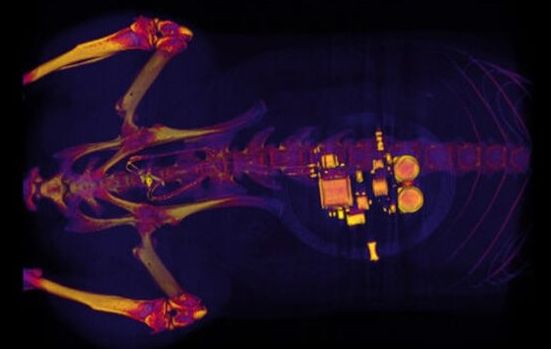A team of neuroscientists and engineers has developed a tiny, implantable device that has potential to help people with bladder problems bypass the need for medication or electronic stimulators.
The team — from Washington University School of Medicine in St. Louis, the University of Illinois at Urbana-Champaign, and the Feinberg School of Medicine at Northwestern University in Chicago — created a soft, implantable device that can detect overactivity in the bladder and then use light from tiny, biointegrated LEDs to tamp down the urge to urinate.
The device works in laboratory rats and one day may help people who suffer incontinence or frequently feel the need to urinate.
Read more
